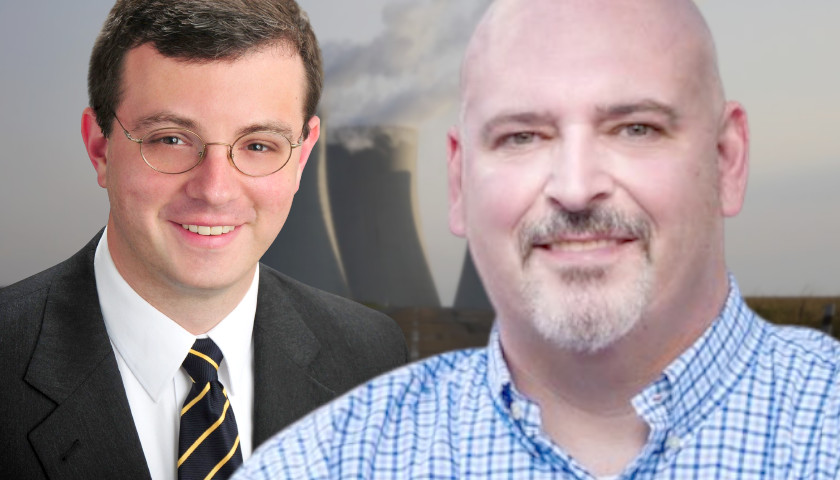Virginia Speaker of the House Todd Gilbert (R-Shenandoah) and West Virginia Speaker Roger Hanshaw (R-Clay) are partnering to create a framework to bring advanced nuclear technology to their states. West Virginia has recently repealed a ban on developing nuclear energy sources, and Virginia Governor Glenn Youngkin recently called for a “moonshot” – constructing a small modular reactor in southwest Virginia. In addition to addressing energy needs, leaders are hoping the push will bring economic and technological development to the economically-challenged areas.
“Virginia has been the beneficiary of nuclear power for many years,” Gilbert said in a Thursday press release. “Nothing works harder, longer, safer, or more reliably than a nuclear power plant. Small nuclear reactors are the next wave of energy technology, and Virginia should be an East Coast hub for its development and deployment. It’s important that rural and economically challenged areas, and the Commonwealth of Virginia as a whole, benefit from the innovation, jobs, and investment small modular nuclear technology will bring to the electric grid.”
Small modular reactors (SMRs) are a new type of nuclear reactor technology that has advantages including lower site footprints.
“Recent federal legislation signed into law by President Biden calls for a massive infusion of federal dollars through tax credits, grants, and other funds for clean energy investment to include SMRs in rural areas and areas around coal mine sites,” Gilbert’s release states.
“I believe small modular nuclear reactors and technology are the wave of the clean energy future. These units can be built on old coal sites and is one way to bring jobs back to our coal dependent communities,” said Hanshaw. “Imagine how we could transform West Virginia for the better with high paying jobs, a better skilled workforce, additional tax revenue for localities in need of better schools and roads.”
At the beginning of October, Youngkin called for an SMR in southwest Virginia, calling for an all-of-the-above energy policy that includes natural gas, wind, and solar – but he also criticized wind and solar, saying their intermittent nature isn’t enough for Virginia energy needs. He also criticized the Virginia Clean Economy Act (VCEA), which has deadlines for Virginia’s energy generation to be 100-percent carbon free. Youngkin’s administration is also going through the regulatory process to repeal Virginia’s involvement in the Regional Greenhouse Gas Initiative, a program mandated in the VCEA where utilities bid on carbon credits.
Democrats, who control the Senate, may be open to more nuclear development in Virginia but they’re concerned about Republican efforts to bypass or repeal the VCEA.
“If the governor leaves the Virginia Clean Energy Act alone there might be room to talk about that, but as long as he continues to bash wind and energy storage it is going to be difficult to reach a consensus on small nuclear,” State Senator Scott Surovell (D-Fairfax) told The Virginia Star.
Senate Agriculture, Conservation and Natural Resources Committee Chairman Chap Petersen (D-Fairfax City) told The Star how he’d evaluate nuclear legislation.
“I think we need to see that it’s still compatible with the Clean Energy Act, which we passed in 2020. So again, as long as it’s compatible with that, that’s going to be question number one,” he said. “Question number two is cost.”
“Nuclear is very expensive to build. Once you build it, it’s relatively cheap to operate the plant, but it’s very expensive to build. And so, as you know, I’ve fought the battles over the years to make sure that the State Corporation Commission has the ability to rein in costs for consumers. And, you know, I don’t want a nuclear plant to be a boondoggle for someone where they’re walking away with, you know, a couple-hundred-million-dollar profit on the back of the ratepayers,” he said.
– – –
Eric Burk is a reporter at The Virginia Star and The Star News Network. Email tips to [email protected].
Photo “Roger Hanshaw (Left)” by Roger Hanshaw. Photo “Todd Gilbert (Right)” by Todd Gilbert.




